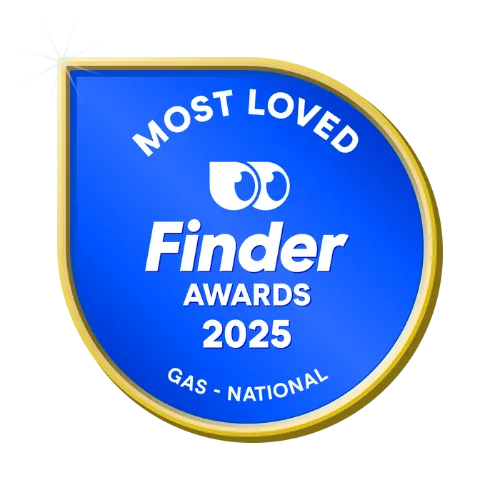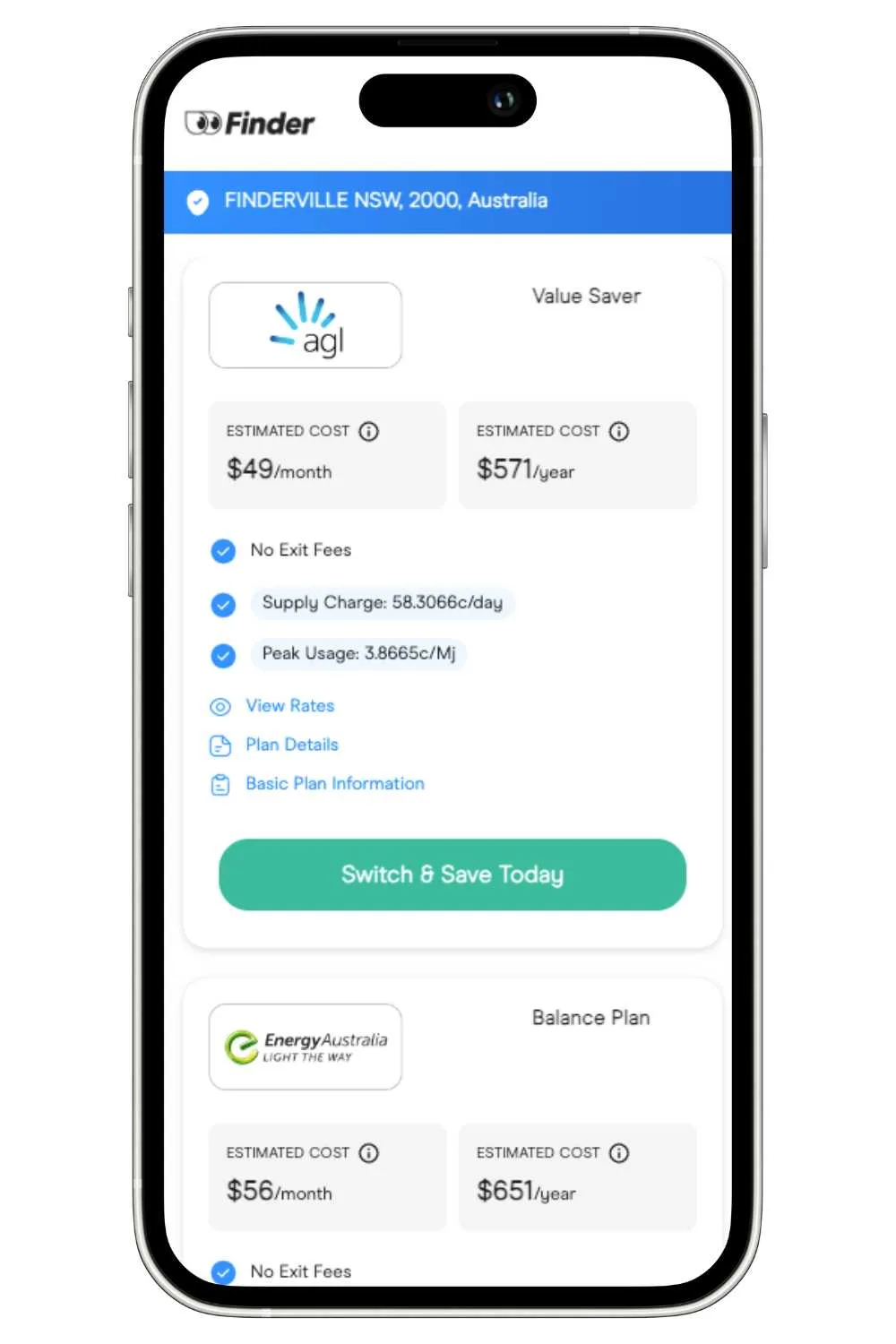
Most Loved - AGL
AGL was voted the most loved gas brand, with its availability spanning most states including WA, SA, NSW, VIC and QLD. It's well-known for being a one-stop shop for all utilities including energy, mobile and broadband.

Each state and territory has its own way of handling the energy market - some are highly regulated, while others are completely open.
Your ability to compare gas prices and switch providers depends largely on where you live. Here's the scoop:

"My gas bills have been all over the place the last few months since I changed providers at the end of last year. On some occasions, I've been paying more for gas than electricity because the estimated reading has been wildly inaccurate. Every three months, my meter gets read and my bills get compensated. However, I'd prefer to add the money to my savings account ASAP instead of waiting for my bills to be smoothed over. As of this month, I've decided to change to quarterly billing. It may not work for everyone, but it's better suited to my financial situation."
In states or territories where gas is deregulated and you can switch plans, your retailer will set gas prices. They'll look at a few variables including:
Gas rates can change from time to time, usually annually and around the same time as when electricity prices are set by the regulators (1 July).
Based on the context we've just run you through, your retailer will then apply the following charges to your gas bill.
Usage rate: This is how much you'll be charged for your consumption. Gas plans normally come with stepped rates, meaning the price can vary based on your energy consumption through the month or quarter.
Supply charge: This is set by the distributor for supplying gas to your property. You'll be charged this daily, regardless of whether you're using gas or not.
There's a good chance you're eligible if you're a low-income household, veteran, pensioner or concession card holder. Other eligibility criteria might apply as well, so this isn't an exhaustive list.
Depending on where you live, you may be eligible for rebates or concessions from the federal or state government such as:
Call your energy provider and they'll be able to help you out. Alternatively, the government's energy website is a good place to start your research.
Nearly two-thirds of Australian concession card holders are not aware they may be eligible for energy concessions on bills, a Taking the Pulse of the Nation survey from June 2024 found.
You'll rarely get a bundling discount for both gas and electricity from the same provider.
It's always better to compare the two separately to see if you can get cheaper deals for electricity and gas from different providers.
Sometimes you'll come across gas plans that can only be accessed if you sign up for an electricity plan with the same provider.
Just make sure you're happy with the rates for both plans before committing.

"I'm quite possibly spending more than I should on gas - I don't even know my supply charge! I have both gas for heating and for cooking, and it's great. Luckily the government requires my gas provider to tell me if they have a cheaper plan available, which I switch to when I get the alert. I know that I could save more by comparing though, which I am trying to do more often."
Besides shopping around for a cheaper gas plan, you can also make certain changes around to home to reduce your gas consumption.
Of course, it'll largely depend on the types of appliances you have installed at your property so not all of these tips will apply to every single person.
Cooking
Assuming you have gas ovens and cooktop stoves, consider:
Heating
Based on our research, gas heaters can be a bit more costly to run than some energy-efficient electric heaters. But there are ways to keep your bills at bay without investing in a different appliance altogether.
Hot water
If you have a gas water heater, the key to reducing your use has more to do with your water use and systems than the heater itself. That is unless you have a leaky system.

AGL was voted the most loved gas brand, with its availability spanning most states including WA, SA, NSW, VIC and QLD. It's well-known for being a one-stop shop for all utilities including energy, mobile and broadband.

Origin Energy was highly commended in this category. Its gas plans are available in NSW, VIC, SA, QLD, WA and the ACT. It's also one of the few providers offering electricity, gas and internet plans in case you're looking to bundle your utilities with the same provider.

Alinta Energy was also a runner-up in this category. It offers gas plans in the four major states: NSW, VIC, QLD and SA. It's a good option if you want Australia-based customer support as well as extra perks such as discounts on experiences and other products through its rewards store.

We know our stuff. Our experts review hundreds of plans each month. It's hard work, but we love it.
You can rely on us. We update plan data on dozens of providers daily, and we're constantly fact-checking.
We're here to help. We've helped millions of Aussies find cheaper energy. That's pretty powerful.
Find out which gas retailer is the better choice in Western Australia.
Find out if your gas rates are more or less than the average in your state.
My gas provider just sent me a message that they have a cheaper plan on offer. Is that legit? Or is it something I should throw away?
Hi Jack, just to ensure it’s not a scam, call your provider directly and reference the message you were sent. Energy retailers are now legally obligated to inform you if they have a cheaper plan available every 90-100 days though this is usually mentioned on the first page of your bill. Either way it’s always good to call them directly to ensure financial safety.
Is GloBird a retailer for the state of Queensland?
Hi Justen,
Thanks for reaching out to Finder.
Unfortunately, GloBird Energy does not offer electricity and gas in Queensland. They are a small energy company offering electricity and gas to customers in Victoria. You can instead check for alternative electricity and gas retailers in Queensland.
Please ensure that you meet all the eligibility criteria and read through the details of the needed requirements as well as the relevant Product Disclosure Statements/Terms and Conditions.
Regards,
Jhezelyn
Why is Western Australia not on the compare lists?
Hi Cody,
Thanks for your inquiry.
You can find the available energy providers in Western Australia. Please use our comparison table to help you compare brands based on features, customer service rating, etc. You can click on ‘View details’ to see the pros and cons per provider. You can click on ‘More info’ to be rerouted to our review page to check the details about the provider and cost.
Once you are ready to sign up, you can click on the ‘Go to site’ button (if available) to be securely redirected to the provider’s website. Or hit on the ‘Enquire now’ button (if available) to have an electricity wizard contact you to discuss your options. You simply need to provide your name, contact details, property type, and postcode then make sure you read and understand the terms and conditions before clicking on the green ‘Enquire now’ button.
Cheers,
May
We have bottled gas. Is there a comparison for this? Including any fees.
Hi Lee,
Thank you for your inquiry.
Unfortunately, we don’t have a comparison for LPG (bottled gas). What we do have is a comparison for suppliers that offer natural gas which is listed above. You might like to get in touch with the providers that offer LPG directly.
Hope this helps.
Best regards,
Rench
How does Kleenheat compare with Alinta for gas supply in Perth?
Is there any reason you make no mention of Kleenheat in your info.
Hi Jo,
Thank you for letting us know about Kleenheat!
We will write something up and will update you once it’s up. However, if you would like to directly compare Kleenheat and Alinta, we recommend that you get in touch with a energy consultant.